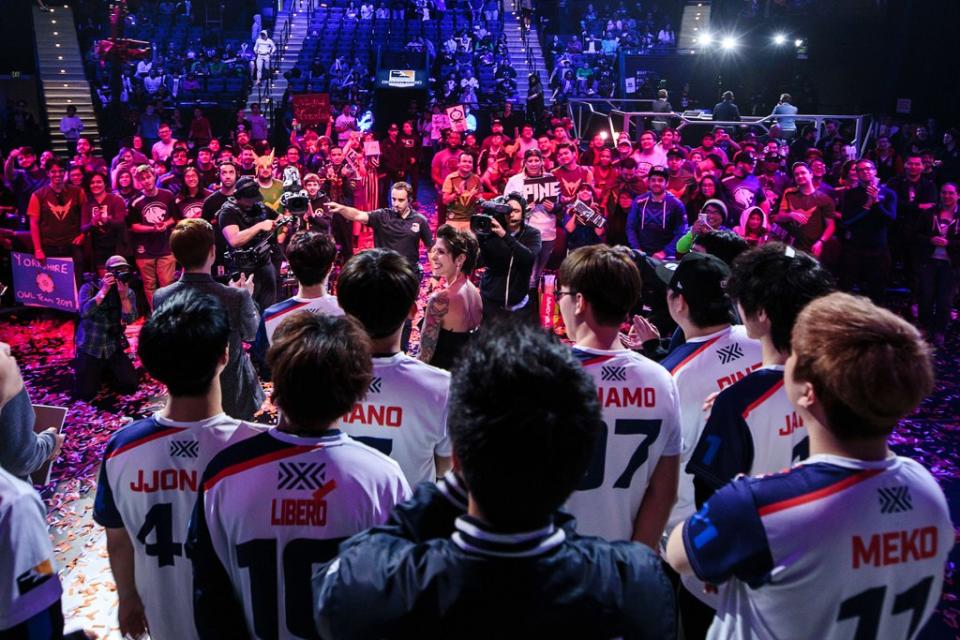Why Overwatch Needs a Watchdog: E-sports Faces Its Behavior Problem
FOR YEARS, THE IDEA OF MAKING A CAREER out of playing video games seemed to be little more than a pipe dream. Then the rise of e-sports leagues made it real. Today's professional gamers enjoy salaries, benefits, retirement plans, and the envy of many a cubicle dweller. Yet as gaming has grown into a proper profession, so have its harassment problems--enough so that today's virtual workplaces could use an HR department of their own.
Consider the case of F?lix Lengyel, better known by his digital moniker "xQc." The 22-year-old Canadian gaming pro gave the Overwatch League, a division of entertainment company , quite a headache in January when he hurled a homophobic slur at a gay competitor. Lengyel was promptly suspended. It was far from his only infraction: Lengyel had racked up thousands of dollars in fines for his antics. This year, he used an "emote," the name for the emoticons used on Twitch, the live online gaming channel, in a racially disparaging way toward a league emcee. (Lengyel said later that he didn't realize he was being offensive.)
Lengyel is one of a half-dozen Overwatch League players who have received warnings, fines, or suspensions for their conduct on personal social media channels or official league streams. ("Playing in the Overwatch League is an amazing opportunity but also a big responsibility," commissioner Nate Nanzer says.) But the problem isn't limited to the 12-team Overwatch League, which was established last year. Today, e-sports groups are increasingly asking themselves the same question: How do we ensure that the talent doesn't become a liability?
The NBA 2K League, a 17-team organization in the midst of its inaugural season, is trying to confront the issue before it becomes a problem by looking to the policies of its real-world counterpart. (The virtual league is co-owned by the NBA and Take-Two Interactive, the game publisher known best for Grand Theft Auto.) Before this year's e-season began, players were given a crash course in conduct, says league managing director Brendan Donohue.
Still, most e-sports organizations are young and haven't yet had to deal with bad behavior on a large scale. (Twitch, which is owned by , says it polices harassment using humans and algorithms alike.) But the gaming community's toxic underbelly--on display during the Gamergate controversy in 2014-- offers reason to be concerned that e-sports' growing platform would only magnify it.
In the meantime, results may vary. Pro gamer Mychal "Trihex" Jefferson, who is African-American, says he sometimes sees racially disparaging jokes on Twitch, where he has more than 300,000 followers. "It can hurt," he says. "It can take you out of it."
It can also motivate. Wendi Fleming, a female gamer who participated in this year's NBA 2K League draft--no women were among the 102 players selected--says the dynamic fuels her competitive streak.
"I purposely made my name 'ALittleLady87' so people would know that I'm a woman," she says. "So you could know that a woman just beat you."
A version of this article appears in the July 1, 2018 issue of Fortune with the headline "This Game Is Out Of Control."
See original article on Fortune.com
More from Fortune.com


